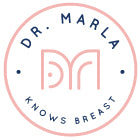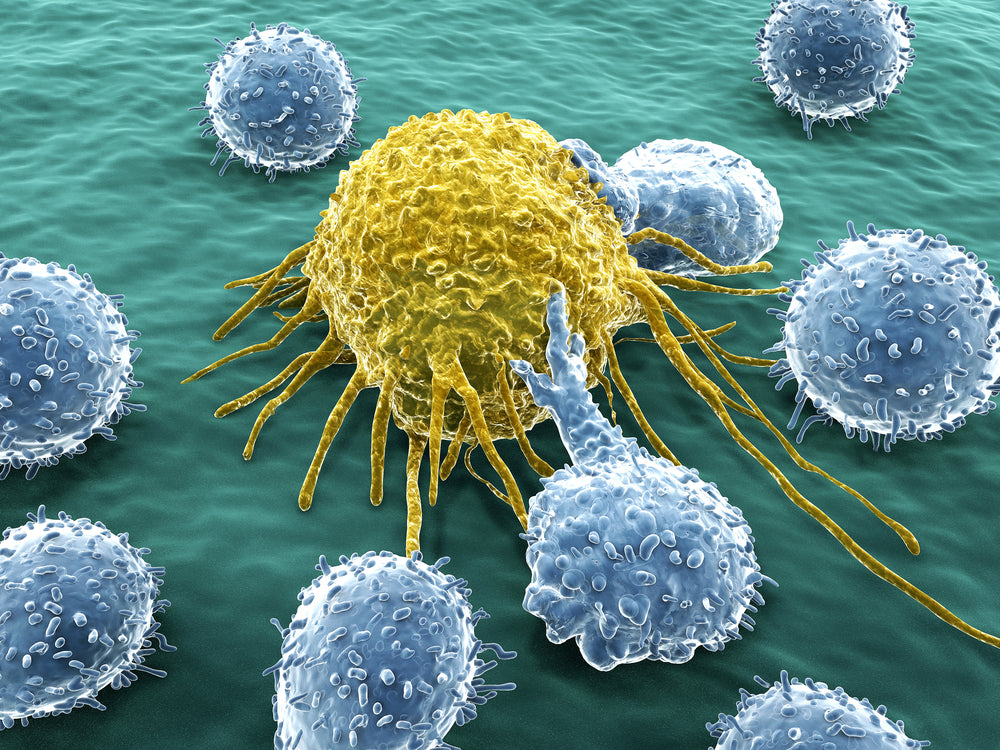The Hallmarks of Cancer
Bulletpoints:
- Cancer development is a complex process and the “hallmarks of cancer” help us understand specific changes in normal cells that must occur for cancer to develop.
- Diet and lifestyle choices can help our bodies prevail against cancer for each hallmark are provided.
The Hallmarks of Cancer

Cancer development is a complex process, and the so-called “hallmarks of cancer” were developed as a useful framework to understand and categorize the kinds of changes that must occur in normal cells for cancer to develop. So, the hallmarks of cancer are not specific symptoms that all patients experience. Rather, the hallmarks describe the biological processes that are exploited or hijacked by cancer to form and grow.
Hallmark 7: Tumor-promoting Inflammation
Acute inflammation is a normal and healthy part of response to injury or infection and is part of our immune response. Most people are familiar with symptoms of acute inflammation of pain, warmth/fever, swelling and redness. The acute inflammatory response is a cascade of growth factors and chemical signals that recruit healing cells and factors. In addition, increased blood flow allows healing factors to be transported to the site of concern to allow healing to begin.
Chronic inflammation occurs when, for example, an infection or injury goes untreated, is the result of an autoimmune process, or chronic exposure to a toxic substance. Chronic inflammation has a role in many illnesses and is strongly linked to cancer. Inflammation is a key requirement for cancer to grow and survive.
White blood cells are part of our inflammatory response and they have been observed in tumors as far back as the 19th century, so the link between cancer and inflammation is well-established. The chronic inflammatory environment becomes a tumor-promoting inflammation environment when a cycle of normal inflammatory cells being hijacked to support cancer growth ensues.
Hijacked cells contain growth factors and other pro-inflammatory chemicals that promote vessel formation and allows the cancer cells to hide from the immune system. This creates a vicious cycle of tumor growth and inflammation and is one of the reasons many cancer often emerge at sites of chronic inflammation.
Curcumin, Green tea, quercetin, reishi mushroom, milk thistle, Astragalus membranaceus and Panax notoginseng have been shown to promote a healthy inflammatory response.
Hallmark 8: Angiogenesis
Angiogenesis is the process in which the body forms blood vessels. It is a critical component in development, and most angiogenesis occurs during fetal development. An important growth factor that promotes new blood vessel formation is vascular endothelial growth factor (VEGF), which attaches to the cell receptor vascular endothelial growth factor receptor (VEGFR) to start the cascade of angiogenesis.
While more blood vessels may sound like a good thing, angiogenesis only occurs in adults in very controlled ways: in response to injury or menstruation. Runaway angiogenesis can cause blood to be diverted from the places it needs to go and rerouted to places it doesn’t belong.
Angiogenesis is one of the hallmarks of cancer because tumors require blood in order to grow to substantial size. Given that cancer cells grow quickly and indefinitely, they can outgrow their initial blood supply and become “stranded”, isolated from nutrients needed for survival.
So, cancer cells can stimulate angiogenesis and grow their own blood supply in order to provide oxygen and nutrients for continued growth and unlimited division. The more they do this, the larger they can grow and the more easily they can spread. In fact, some very effective chemotherapy drugs target the process of angiogenesis through inhibitors that inhibit the activity of VEGF and VEGFR.
Curcumin, Green tea, quercetin, Reishi mushroom, milk thistle, Astragalus membranaceus and Panax notoginseng, and piperine have been shown to maintain normal angiogenesis.
My husband, who holds a PhD in Biochemistry, and I developed a supplement that addresses each Hallmark. Hallmarks has active ingredients shown in scientific studies to help promote cellular health. Visit www.nutrafocusmd.com or visit our shop through the navigation bar on this site.

